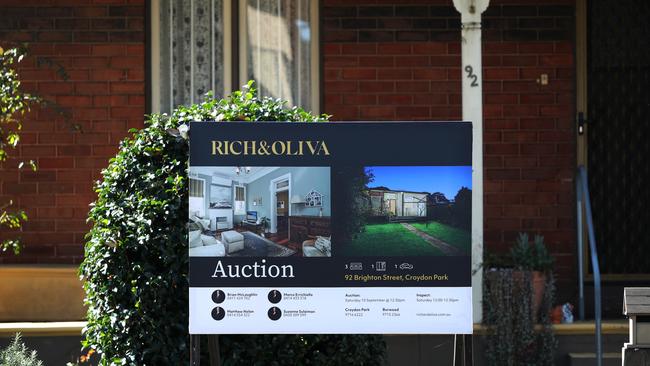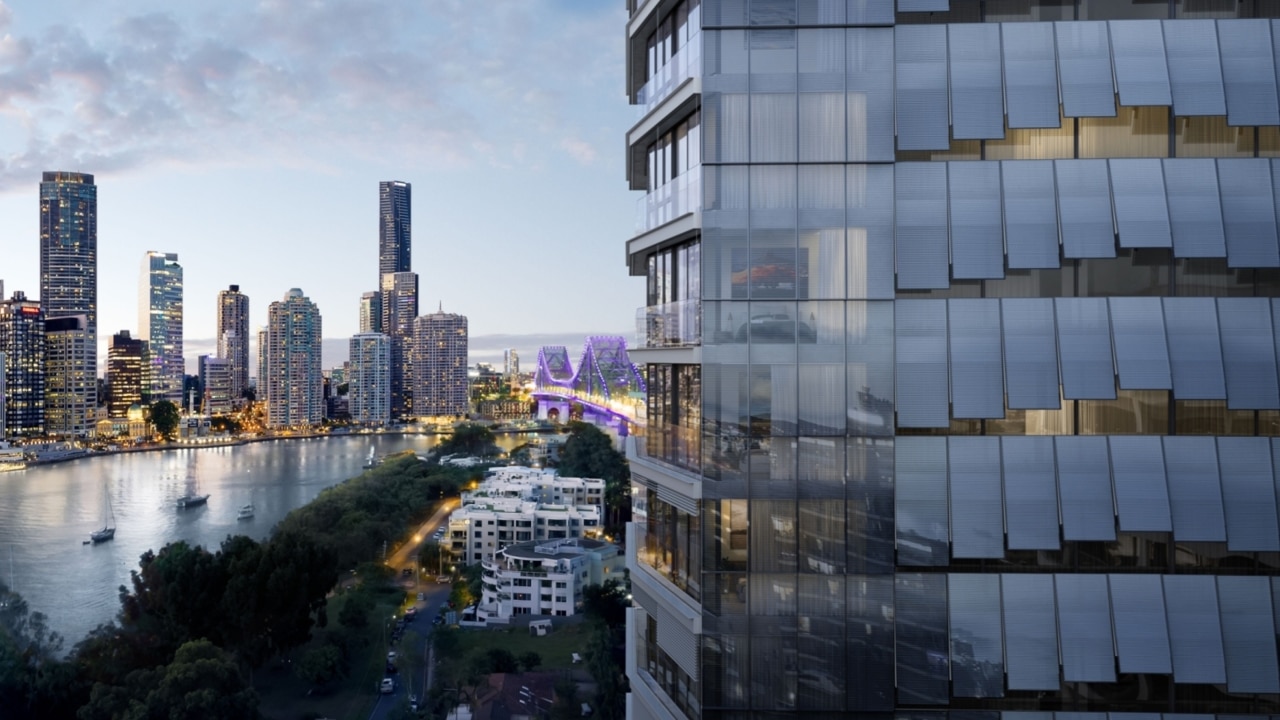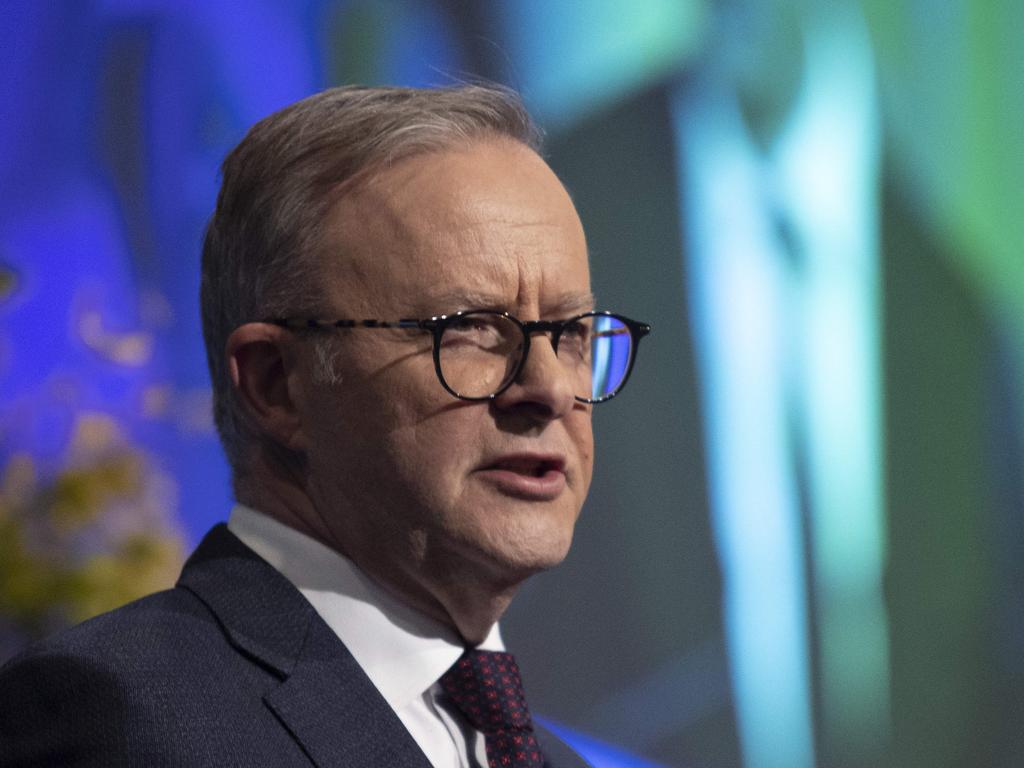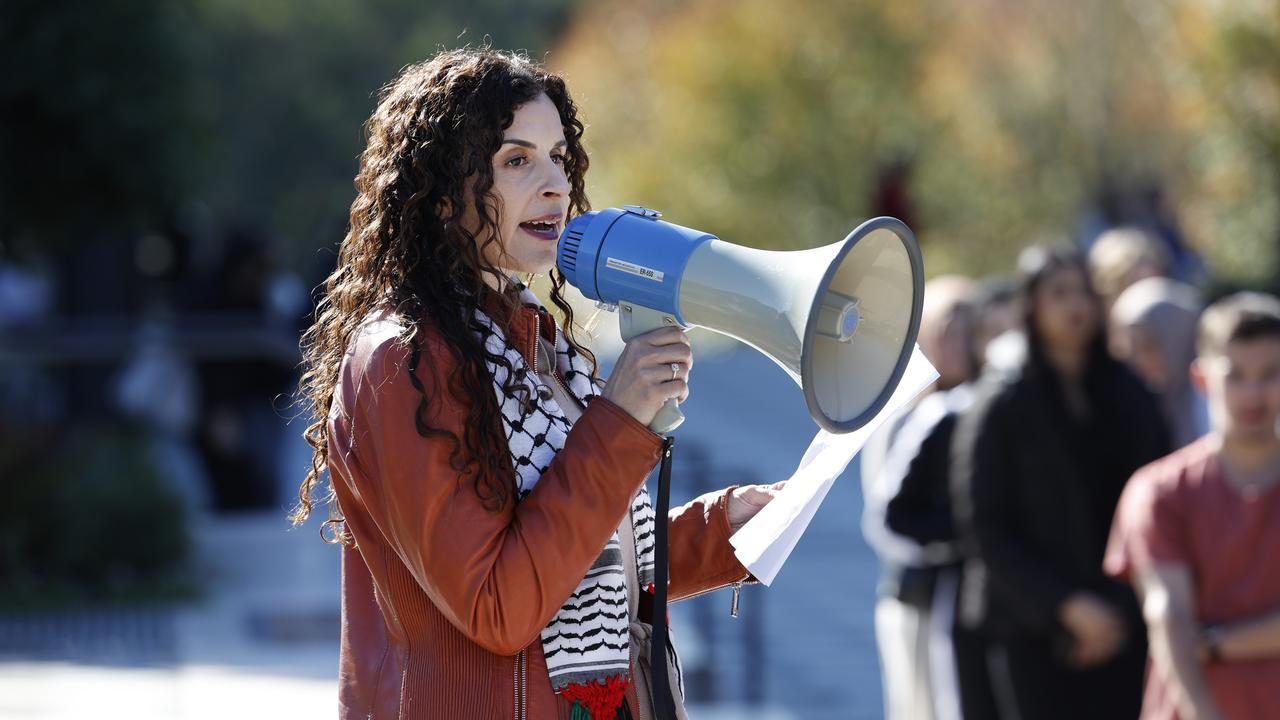Burnt by hot house market but no relief in sight
Whether it is politicians or bureaucrats, voters have a right to feel shafted when it comes to the property market right now.

At a 1960s political rally a Labor supporter interjected during Robert Menzies’ speech, calling out: “Whatcha gonna do ’bout ’ousing?” The prime minister shot back: “Put an H in front of it.”
Such off-the-cuff wit wouldn’t go down well in modern politics. It would be seen as elitist and out of touch. These days Menzies probably would be accused of bullying, even sexism. (There is conjecture over whether the interjector was a man or woman.)
But the retort also wouldn’t answer concerns Australians have about the decline in house prices we are witnessing amid rising interest rates and rents.
While interest rates remain relatively low by historical standards, seven consecutive increases across six months have punctured the belief that house prices can keep defying gravity.
Too many people bought into a hot market when they shouldn’t have, spurred on by government policies encouraging home ownership. The previous Coalition government used to crow about its incentives encouraging people to borrow beyond their means to own a first home.
The aim was political, not economic: hoping to cash in on more voters entering a hot housing market feeling as if they were profiting off rising prices. It didn’t bother our leaders that rates were at historic lows. Nor did they care that they were encouraging those without good credit to enter a potentially volatile market.
To make matters worse, last year Reserve Bank of Australia governor Philip Lowe exceeded his remit, declaring interest rates wouldn’t rise until 2024. His aim was to instil confidence when it was waning during the pandemic. But in doing so he broke the cardinal rule among central bankers not to project forward, prognosticating without foundation.

Lowe has tried to retrofit his remarks by claiming nothing he said was set in stone. That doesn’t undo the irresponsibility attached to what he said. So whether it is politicians or bureaucrats, voters have a right to feel shafted by their political leaders. The banking royal commission specifically made recommendations to fix lending arrangements to those who couldn’t afford the debt they took on, yet since that time policy scripts had been adjusted to do just that.
We know that rates will continue to rise, and not simply because Lowe said as much this week. His comments last year highlight that what he has to say means very little. Rates will rise because inflation isn’t yet under control. High inflation distorts price signals within the economy. It also whittles down people’s savings and acts to deter investment.
Unless inflation can be brought under control it turns into hyperinflation, which renders money worthless – such that people consume immediately rather than save. No investment in the economy sends a signal that the economy isn’t worth investing in, which has a spiralling effect.
Like it or not the RBA has to keep sending rates north in a bid to curb spending to bring inflation back under control, ideally within its target range of 2-3 per cent.
Last week’s budget claimed that would happen a few years from now. It might happen sooner if the impact of rate hikes drags down economic activity quicker than expected.
But that will also most likely result in unemployment rising faster and higher than anticipated. At the moment people are avoiding selling their homes in a declining market, choosing for the most part to bunker down and absorb higher interest payments.
But you can’t do that if you lose your job or if the payments rise beyond your means.
What must be scary for so many homeowners is the potential that the housing correction currently under way results in them having negative equity in their homes. If they do sell they don’t only miss out on virtual profits they have been counting on, they also lose their home and walk away with a debt burden. Australia isn’t like the US where you can simply hand back the keys when disengaging from a home loan package.
Homeowners have already absorbed a 50 per cent increase in their monthly repayments and that figure will keep rising before it falls or stabilises, most likely late next year.
The danger for Labor is that the economic tumult will linger beyond the current electoral cycle. Labor can’t seriously seek to offset the pain voters are suffering by issuing budget handouts because doing so would set fiscal policy at odds with the RBA’s monetary policy. So far at least Labor has issued that warning and refrained from such economic vandalism. But can we count on the government sticking to that mantra when the political going gets really tough?
With interest repayments on government debt exceeding spending on major social policy areas, rising energy prices, inflation and interest rates coupled with ballooning debt and declining real wages, the economic times we live in are dire.
And that’s before factoring in declining house prices, rising unemployment and international security concerns.
A generation of Australians has yet to suffer under the burden of serious economic decline. The challenges of Covid-19 proved to be a mirage on this front. The only solution to such hardship beyond weathering the storm is to reform for the future.
This week Anthony Albanese used a speech in Melbourne to claim that was his intention. But there was little meat on the bones of what such reform might look like. Even if the Prime Minister is serious about embarking on such a journey, there are no guarantees voters will come along for the ride.
Doing so probably requires the opposition to play along, and I’m not sure Peter Dutton is willing to do so. I’m also not sure Jim Chalmers even believes in the importance of such reforms or understands the immediacy of the need. The Treasurer is no Paul Keating and Albanese is no Bob Hawke. While I hope they prove me wrong in making that assumption, the overwhelming odds are they won’t. When you also consider the Opposition Leader is no John Howard, the difficult economic situation our country is in becomes even more apparent.
For all the contestation of the 1980s era of micro-economic reform, Howard played a vital role in opposition supporting much (not all) of what was done. Can anyone see Dutton doing the same, even if Albanese and Chalmers prove capable of making tough reforming decisions?
A looming collapse in house prices coupled with defaults is only the start of what is to come. And it is going to happen in an environment of historically low interest rates, because rates have risen from record lows during which too many people were encouraged to buy into a hot market.
If somebody asked this government what it was gonna do ’bout ’ousing it couldn’t even come up with a witty response, much less a response of substance.
Peter van Onselen is a professor of politics and public policy at the University of Western Australia and Griffith University.






